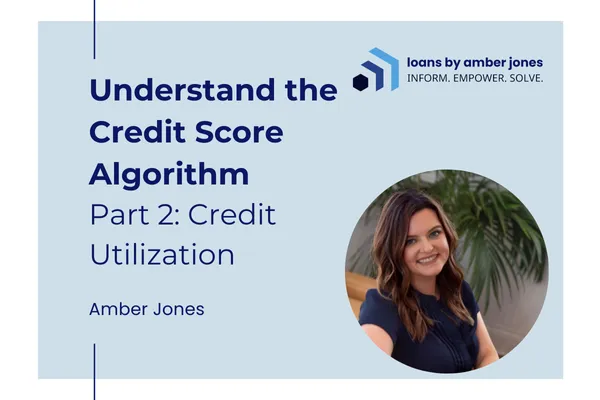
Understand the Credit Score Algorithm – Part 2: Credit Utilization
“Even if you're making your payments, maxed-out cards can still tank your score.”
– Sam Parker, CEO of MyCreditGuy

🧠 Understand the Credit Score Algorithm – Part 2: Credit Utilization
Featuring Sam Parker, CEO of My Credit Guy Credit Restoration
If you’ve ever been told to “keep your balances low,” you were hearing advice rooted in one of the most influential pieces of your credit score: credit utilization. It’s the second-largest factor in the FICO® scoring model—making up 30% of your score.
In this installment of our 5-part series, Sam Parker, CEO of My Credit Guy Credit Restoration, breaks down what credit utilization really means, how it affects your score, and the habits you can start now to bring this number in line.
🎥 Watch Part 2 Now ⬇️
🧾 Why Credit Utilization Matters
Credit utilization refers to how much of your available revolving credit you're using—primarily on credit cards. It’s expressed as a percentage, and the lower your balance compared to your limit, the better your score will be.
In the video, Sam explains:
Credit utilization makes up 30% of your credit score
High balances (even if you're not late) can drag your score down
Example: A $2,000 credit card maxed out at $1,999 signals risk to lenders
You should use your credit, but keep usage as low as possible
Accounts that go unused too long may go dormant, which also isn’t helpful
🧠 Sam’s key reminder: “Keep your balance-to-limit ratios low—especially on credit cards.”
✅ Take Action: Optimize Your Utilization
Here are some simple steps to improve this part of your credit profile:
Keep balances below 30% of your credit limit—ideally under 10% for the best impact
Spread balances across multiple cards if needed, rather than maxing out one
Make extra payments mid-month to lower your reported balances
Don’t close unused cards, especially if they have a high limit
Use your cards sparingly, then pay them off each month to show responsible use
📌 Coming Up Next: Part 3 – Length of Credit History
In Part 3, we’ll explore how long you’ve had credit—and why keeping older accounts open could be helping more than you realize. We'll talk about the impact of account age and what to avoid if you're trying to build your score for the long haul.
💬 Final Thought
Managing credit utilization is one of the most immediate and effective ways to improve your credit score. It’s not about avoiding credit—it's about using it strategically. With the right habits and the right help, you can move one step closer to stronger credit and your next financial milestone.

